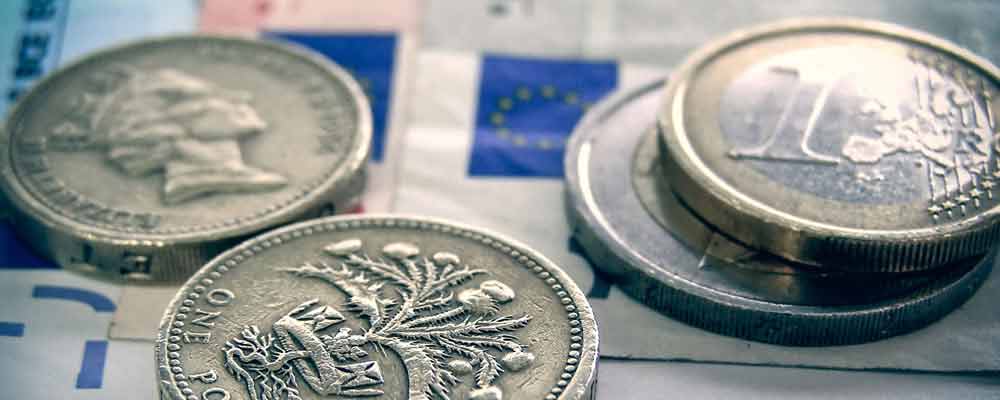GBP/EUR Exchange Rate Dips as May Pressurised to Shorten MP Holidays for Brexit Vote
The Pound Euro (GBP/EUR) exchange rate is down today, and is currently trading within the region of €1.1047 as pressure mounts on Prime Minister Theresa May to shorten MPs’ holiday break to continue negotiations over her Brexit deal ahead of the mid-January vote.
Yesterday, however, also saw May shorten Cabinet ministers’ holiday by five days to prepare for a possible ‘no-deal’ Brexit, further alarming Pound (GBP) investors.
The Euro (EUR), meanwhile, was limited by yesterday’s bulletin from the European Central Bank, which noted that Italy represents ‘the largest deviation from existing commitments’ to the EU’s Stability and Growth Pact.
Hans Vollaard, a Political Scientist at Leiden University, said:
‘The extremely complicated negotiations concerning the exit of the UK from the EU adds to the turmoil. . . Therefore, an atmosphere of uncertainty has established itself throughout the continent. There, you have the two key elements that make 2018 one of the worst years in the history of the Union.’
Pound to Euro (GBP/EUR) Exchange Rate down as Corbyn Calls for Brexit Vote ‘as Soon as Possible’
The Pound (GBP) has generally benefited from a lull in Brexit news into the New Year, with the House of Commons set to return on 7 January to continue discussion over Theresa May’s Brexit deal.
However, opposition leader Jeremy Corbyn has called for Parliament to return a week early on 2 January instead of the currently penned 7 January to bring forward the vote on Brexit, saying:
‘I want us to have a vote as soon as possible, that’s what I’ve been saying for the past two weeks, and if that means recalling Parliament to have the vote let’s have it.’
In an otherwise quiet data calendar, today saw the release of the UK BBA mortgage approval figures for November which showed a better-than-expected result at 39.403K, however it was down against October’s 39.64K.
EUR/GBP Exchange Rate Rises Despite Signs of ‘Yellow Vest’ Flare-up in France
The Euro was dented slightly today by the release of Germany’s import price index for November which showed a worse-than-expected decrease to -1.0% against last month’s 1.0%.
Later today will see the release of Germany’s Consumer Price Index for December which is expected to increase, potentially providing a leg-up for the Euro to Pound exchange rate.
The Euro stabilised earlier this week on news that Italy’s senate had passed Rome’s revised budget, which has eased Euro investors’ concerns over Italy facing potential fines from the EU.
However, Euro investors have concerns over France’s ‘yellow vests’ protesters who are expected to return on Saturday and New Year’s Eve.
With President Emmanuel Macron’s recent capitulation to pressures from the protestors on tax issues, this could further leave investors in the single currency feeling cautious into the New Year.
GBP/EUR Outlook: Brexit and France ‘Yellow Vests’ to Remain in Focus
The GBP/EUR exchange rate is likely to be driven by political forces rather than economic ones into the New Year, with markets being closed over the holiday period.
Brexit will remain in focus for Sterling investors, with Theresa May once again rallying to gain support for her Brexit deal from Parliament, as the vote showdown is due to take place in mid-January.
Meanwhile Euro traders will have their sights set on any continuing political volatility in France, with fears that further budget concessions and threats to the French government may unsettle the EU in 2019.
Next Wednesday will see the release of the Eurozone’s Markit manufacturing PMI figures for December which are expected to remain static.
These will be followed by the UK Markit manufacturing PMI figures for December which are expected to increase, possibly boosting Sterling.
Friday, meanwhile, will see a raft of significant UK and Eurozone ecostats, with the most notable being the release of the Eurozone’s PPI figures for December which are expected to decrease, potentially strengthening the GBP/EUR exchange rate.



